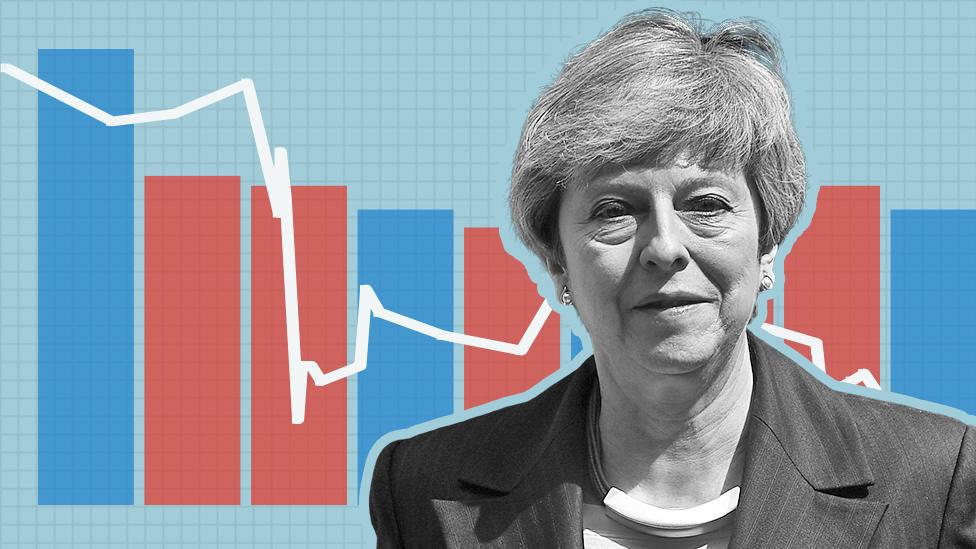A political career ends in tears
- Published
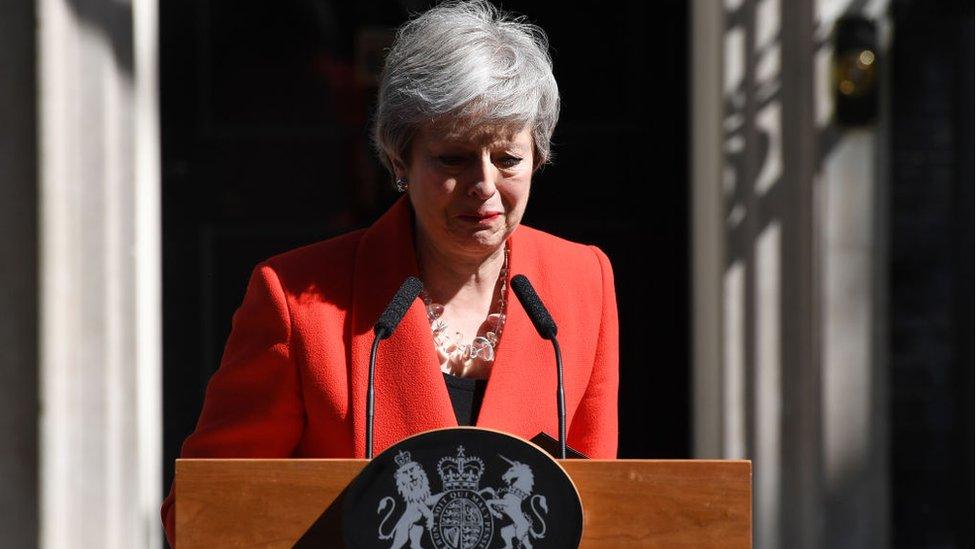
It is, in all candour, a hideously difficult challenge to lead a political party. Exponentially more so to be prime minister or first minister, to lead a government.
In no way do I share the view, occasionally heard, that all politicians are self-serving. There are some who are exceptionally talented. And some I wouldn't send for a message. Such is democracy.
But most, the vast majority, are motivated by public service, by a desire to do things better. As noted, that is particularly true in high office.
So it is right, entirely right, to offer the greatest respect to Theresa May on her decision to demit office - and to applaud the manner of her going, which was without personal recrimination or complaint.
It is right, too, to recognise that she strived endlessly to deliver the mandate she believed had been entrusted in her care by the European referendum of 2016.
Equally, it is understandable that her Downing Street statement talked of progress, of attempted consensus - but, ultimately, of frustration and targets missed.
Of course, there is a simpler, more brutal, word to describe Mrs May's time in office. Failure. Trust me, I understand and appreciate why she chose different vocabulary. I empathise.
Yet, failure it is. She it was who chose to hold an entirely unnecessary UK General Election in 2017. She it was who approved a policy on care of the elderly which scarred her manifesto launch. She led a lacklustre campaign which cost her party seats and a majority in the Commons.
'All failures'
It was Theresa May who headed negotiations with the European Union which resulted in an agreement containing material anathema to sections of her party.
Yet she persisted in seeking to strike a bargain with her own side - and only sought to involve the opposition Labour Party when it was too late, when the atmosphere was so febrile that compromise was no longer feasible.
These were failures. All failures. She palpably lacked the guile, the emotional intelligence, to cajole an unwilling House. Senior colleagues recount that she seemed unable to discern the occasional need for subtlety, for cunning. Instead, she chose to plough on.
However, let us also remember the other side of the equation. She did not choose to hold a referendum on the European Union. That was down to David Cameron. She did not lead the Remain camp in that plebiscite.
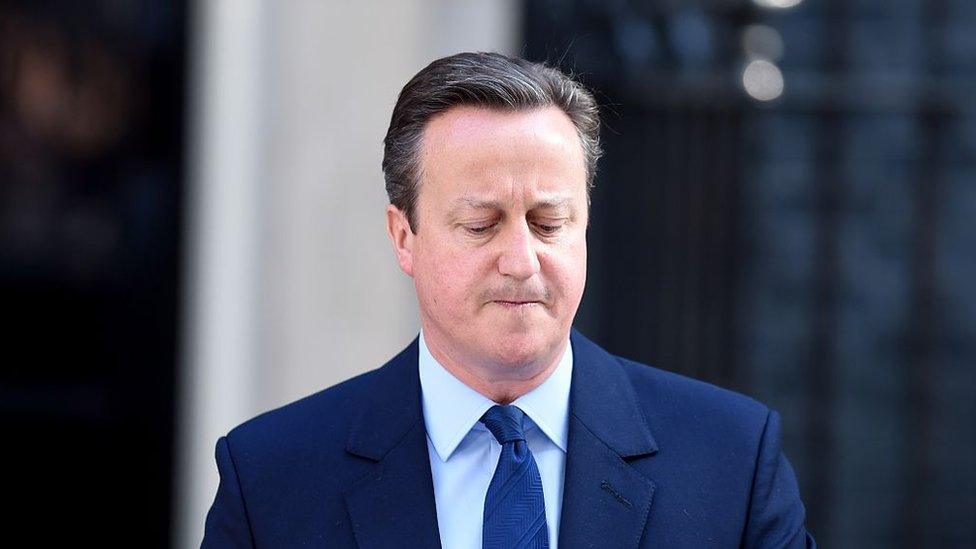
David Cameron stood down after the UK voted to leave the European Union
One might argue that she sought, therefore, to remedy a crisis of her predecessor's making, seeking in the by-going to unite the UK and her party. Arguably, an impossible conundrum.
Yes, she called the general election. But the precise outcome was not of her making. It was uniquely calamitous for her prospects that she ended up depending upon support from the Democratic Unionist Party at a moment when the very issue of Northern Ireland was central to the Brexit talks.
Nobody, but nobody, says No quite as vigorously and resolutely as the DUP.
And, quite possibly, a deal with opposition parties may never have been possible, might always have been ruled out by the hostile nature of contemporary politics.
'Profound change'
Confronted with that dilemma, she sought to pursue a solution which strengthened the union, as she saw it. Not out of expediency, but out of principle.
Still, I do not quite grasp the section in her statement when she referred to other aspects of the Brexit referendum. She said it was "not just a call to leave the EU but for profound change in our country".
It was, further, "a call to make the United Kingdom a country that truly works for everyone". What, precisely, do those phrases mean?
I suppose they were designed to set up the succeeding litany of claimed success in the economy and social policy. But it seems to me somewhat platitudinous to suggest that these inchoate desires were germane to the referendum, beyond a vague popular sense of disquiet with all politics.
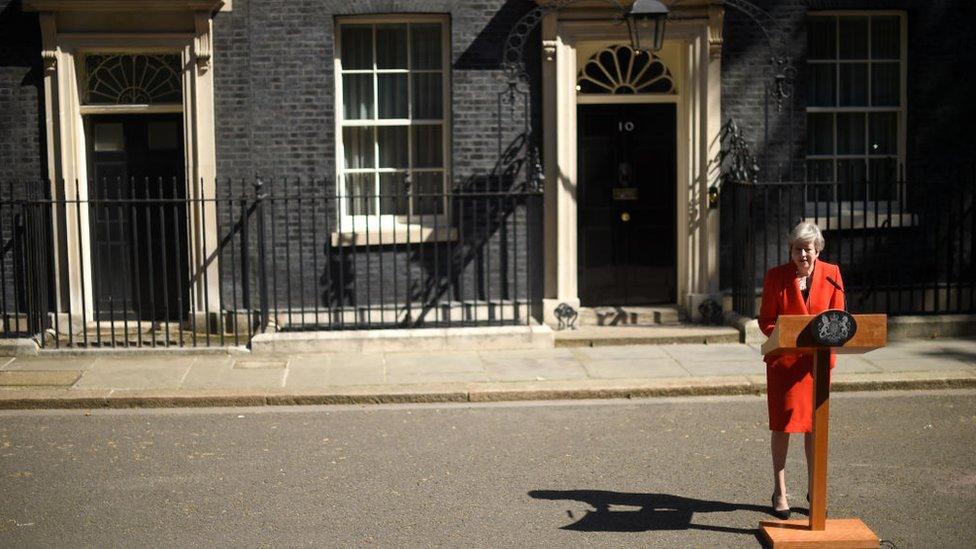
So where now? The Tories will hold a leadership contest, with the membership choosing from two contenders selected by MPs.
Naturally, Opposition parties are deriding the exercise. Jeremy Corbyn wants a general election. Nicola Sturgeon mentions that, the prospect of a further Brexit referendum - and also argues that a Brexiteer PM will strengthen the case for Scotland to have the choice of a different, European future.
Back to the contest, though. The winner will then face the same challenges which confronted Mrs May - except that the EU institutions will presumably be several degrees more frustrated by the prolonged delay in reaching a settlement.
Tory hopes of a deal appear to rest on three factors. That the new PM will be more forceful in demanding a settlement. That there may be more of a centre right hue to the newly elected European Parliament, which may encourage a move in the UK's direction.
And that the new PM will be a Leaver, personally committed to the project and thus, arguably, more trusted by the Leave wing of the Conservative Party in the Commons. We shall see.
For today, however, a political career frequently derided for lacking emotional content has ended in tears.
- Published24 May 2019
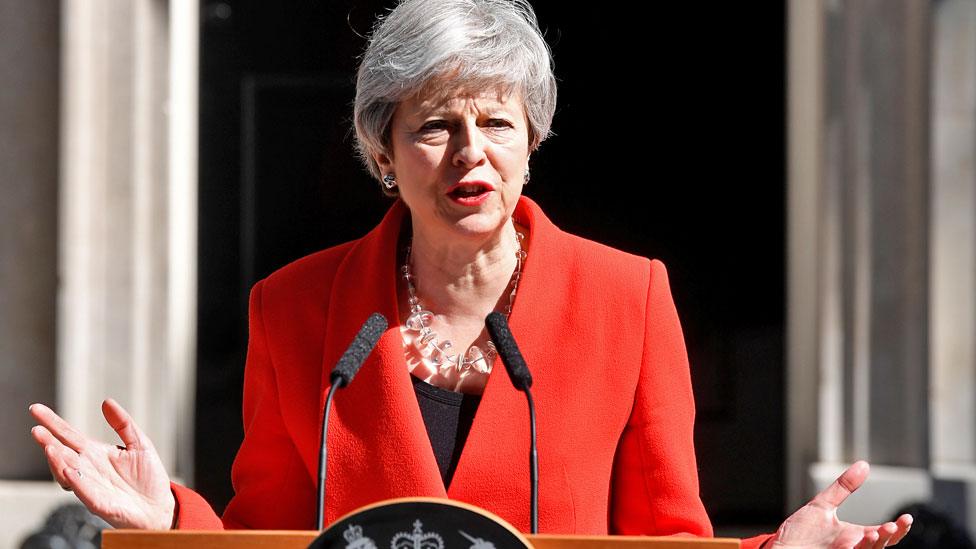
- Published24 May 2019
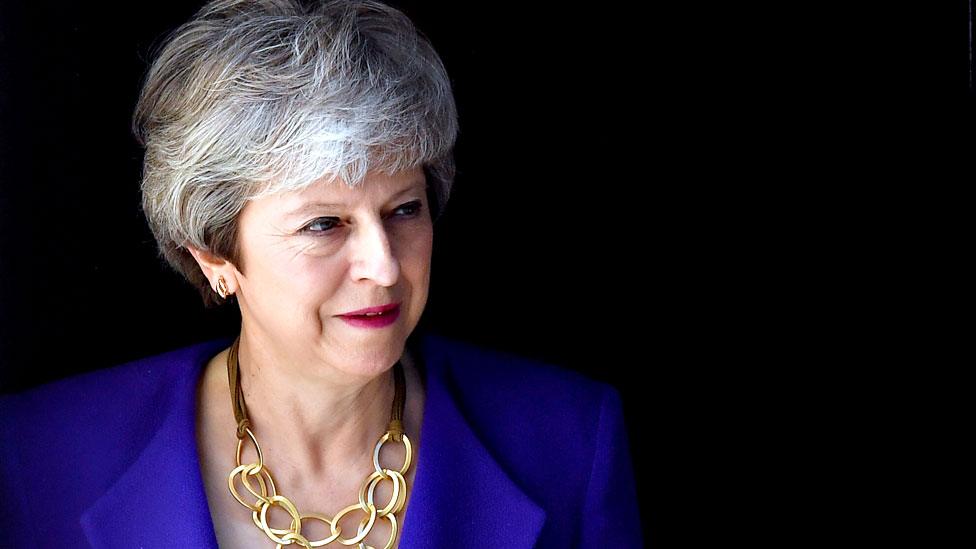
- Published24 May 2019
